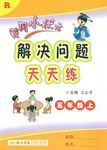题目内容
阅读下面短文,从短文后各题后面所给的四个选项(A,B,C和D)中,选入可以填入空白处的最佳选项
One night I decided to spend some time building a happier and closer relationship with my daughter. For several weeks she had been _______ me to play chess(象棋) with her, so I suggested a game and she eagerly_______. It was a school night, however, and at nine o’clock my daughter asked if I could _______ my moves, because she _______to go to bed; she had to get up at six in the morning. I _______she had strict sleeping habits, _______ I thought she ought to be able to _______ some of this strictness. I said to her, “_______ you can stay up late for once. We’re having _______.” We played on for another fifteen minutes, during which time she looked _______. Finally she said, “Please, Daddy, do it quickly.” “No,” I replied. “If you’re going to play it _______, you’re going to play it slowly.” And so we _______ for another ten minutes, until _______ my daughter burst into tears, and _______ that she was beaten.
Clearly I had made _______ . I had started the evening wanting to have a _______ time with my daughter but had _______ my desire to win to become more _______ than my relationship with my daughter. When I was a child, my desire to win _______me well. As a parent, I _______that it got in my way. So I had to change.
1.A. training B. advising C. guiding D. asking
2.A.replied B.accepted C. allowed D. expected
3.A.hurry B.pass C. change D. repeat
4.A.begged B.hated C. agreed D. needed
5.A.guessed B.heard C. knew D. learned
6.A.but B. or C. so D. for
7.A.pick up B. give up C. put up D. take up
8.A.By the way B.Come on C. As usual D. Go ahead
9.A.fun B.success C. patience D. luck
10.A.anxious B.angry C. excited D. proud
11.A.fairly B.regularly C. well D. again
12.A.counted B.argued C. discussed D. continued
13.A.strangely B.suddenly C. nervously D. immediately
14.A.wondered B. discovered C. promised D. admitted
15.A.an attempt B.an effort C. a mistake D. a decision
16.A.full B.happy C. free D. different
17.A.allowed B.reduced C. managed D. recognized
18.A.practical B.interesting C. important D. attractive
19.A.controlled B.taught C. offered D. served
20.A.imagined B.explained C. realized D. apologized
 黄冈小状元解决问题天天练系列答案
黄冈小状元解决问题天天练系列答案 三点一测快乐周计划系列答案
三点一测快乐周计划系列答案A
Welcome to Our Festival March 7 2016
Story Show in Oheron Adults 8:00 pm -10:00 pm Join in us for an evening of true, personal stories about science. Come to the only show where you can hear people——scientists, not-scientists, and half-scientists——tell funny and touching stories about the role of science in their lives. Cost: $10 |
Make Your Own iPhone Case through Toysinbox 3D Printing Families & Teens & Adults 10:00 am – 12:30 pm In this workshop, you will learn to design and 3D print your own iPhone case. First, you will learn how to use a 3D printer. Next, you will design a 3D model for your iPhone case that will have a lovely pattern and your name. Once you create the model, you will print it out on our 3D printers. A 3D printing worker will guide you through this process step-by-step. Come and enjoy this fun and unique learning experience! Cost: $35 |
DIY Underwater Vehicle Design in MIT Museum Teens 2:00 pm – 5:00 pm Dive into the world of ocean engineering by designing and building an underwater vehicle! Test your vehicle in large tanks on the Museum’s floor. Show off your engineering creations and share your design process with Museum visitors. Cost: $15, Ages 12 |
Animal Kingdom for Young Ones in Museum of Science, Boston Families 9:30 am – 2:00 pm Join us for a day of hands-on science fun designed especially for pre-schoolers! Activities include the Museum’s popular “Live Animal Story Time” shows and a talk about baby animals and book-signing by children’s book authors. Drop in on special live animal visits and activities in the exhibition halls, as well as design challenges and lab activities——all created with your young scientist in mind! Cost: Free, Ages Pre-kindergarten——Age 8 |
1.What can people do in Story Show?
A. Do role-play games.
B. Put on science shows.
C. Hear touching stories.
D. Meet authors of the books.
2.If you are interested in ocean engineering, you will probably attend_______________.
A. Story Show
B. DIY Underwater Vehicle Design
C. Make Your Own iPhone Case
D. Animal Kingdom for Young Ones
3.Animal Kingdom for Young Ones is designed for ____________.
A. adults
B. children of all ages
C. kids under 8 years old
D. children aged twelve and older
4.What is the subject of the festival?
A. Sports. B. Science.
C. Literature. D. Education.


